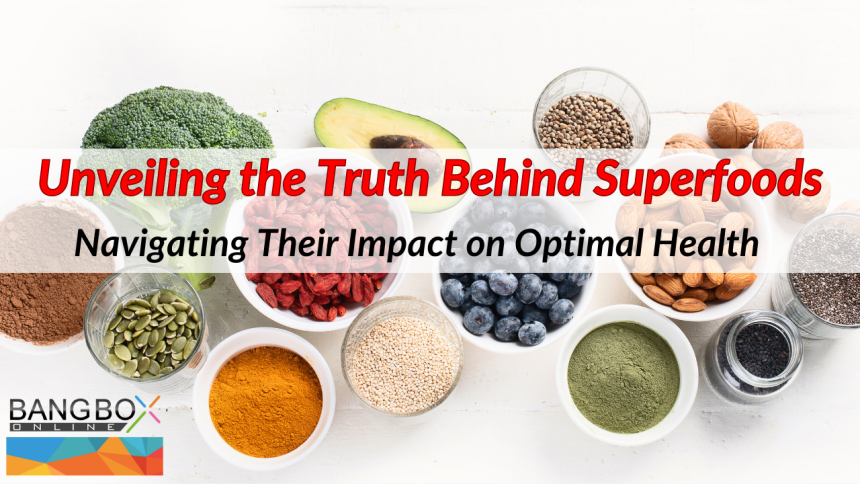
Unveiling the Truth Behind Superfoods: Navigating Their Impact on Optimal Health
In the pursuit of a healthier lifestyle, the term "superfood" has emerged as a buzzword that garners attention and sparks curiosity. These foods are often touted as nutritional powerhouses capable of delivering an array of health benefits. But what exactly is a superfood, and to what extent can they truly enhance our well-being? This article aims to demystify the concept of superfoods and explore their potential impact on our health.
Defining Superfoods:
The term "superfood" is not a scientific classification but rather a marketing term that has gained traction due to its association with high nutrient content and potential health benefits. Superfoods are typically nutrient-dense foods that are rich in vitamins, minerals, antioxidants, and other bioactive compounds that are believed to support overall health and well-being. These foods often come from a variety of plant and animal sources.
Common Superfoods and Their Benefits:
- Berries (Blueberries, Acai Berries, Goji Berries): Berries are packed with antioxidants, such as anthocyanins, which help combat oxidative stress and inflammation. They are known to support brain health, improve cardiovascular function, and promote healthy skin.
- Leafy Greens (Kale, Spinach, Swiss Chard): Leafy greens are excellent sources of vitamins A, C, and K, as well as folate and fiber. They promote bone health, aid in digestion, and contribute to a lower risk of chronic diseases.
- Nuts and Seeds (Almonds, Chia Seeds, Flaxseeds): Nuts and seeds are rich in healthy fats, protein, and essential minerals like magnesium and zinc. They can help lower cholesterol levels, support heart health, and provide a feeling of satiety.
- Fatty Fish (Salmon, Sardines, Mackerel): Fatty fish are abundant in omega-3 fatty acids, which are crucial for brain health and reducing the risk of heart disease. They also provide high-quality protein and vitamin D.
- Quinoa: This ancient grain is a complete protein source, containing all nine essential amino acids. It's also high in fiber, vitamins, and minerals, making it a nutritious alternative to refined grains.
- Turmeric: The active compound in turmeric, curcumin, has potent anti-inflammatory and antioxidant properties. It's believed to offer benefits for joint health, brain function, and overall immune support.
Are Superfoods Truly Super?
While superfoods undoubtedly offer impressive nutritional profiles and potential health benefits, it's essential to approach the concept with a balanced perspective. No single food can provide all the nutrients our bodies need. A diverse and well-rounded diet that includes a variety of whole foods remains the key to optimal health.
Incorporating Superfoods into Your Diet:
- Variety is Key: Rather than focusing solely on a few superfoods, aim for a diverse diet that includes a range of fruits, vegetables, lean proteins, whole grains, and healthy fats.
- Moderation: Superfoods should be incorporated into a balanced diet in moderation. Excessive consumption of any one food, even a superfood, may lead to an imbalance in nutrient intake.
- Whole Foods: Opt for whole superfoods over processed versions or supplements. Whole foods offer a synergy of nutrients that may be lost during processing.
- Mindful Eating: Pay attention to your body's needs and preferences. Listen to hunger and fullness cues to prevent overeating.
Final Thoughts:
While superfoods do offer impressive health benefits, they are not magical solutions to all health issues. A diet rich in a variety of whole foods, combined with regular physical activity and a healthy lifestyle, remains the cornerstone of well-being. Embrace superfoods as a valuable addition to your diet, but remember that true health is a holistic journey that encompasses a balanced approach to eating, exercising, and living.





